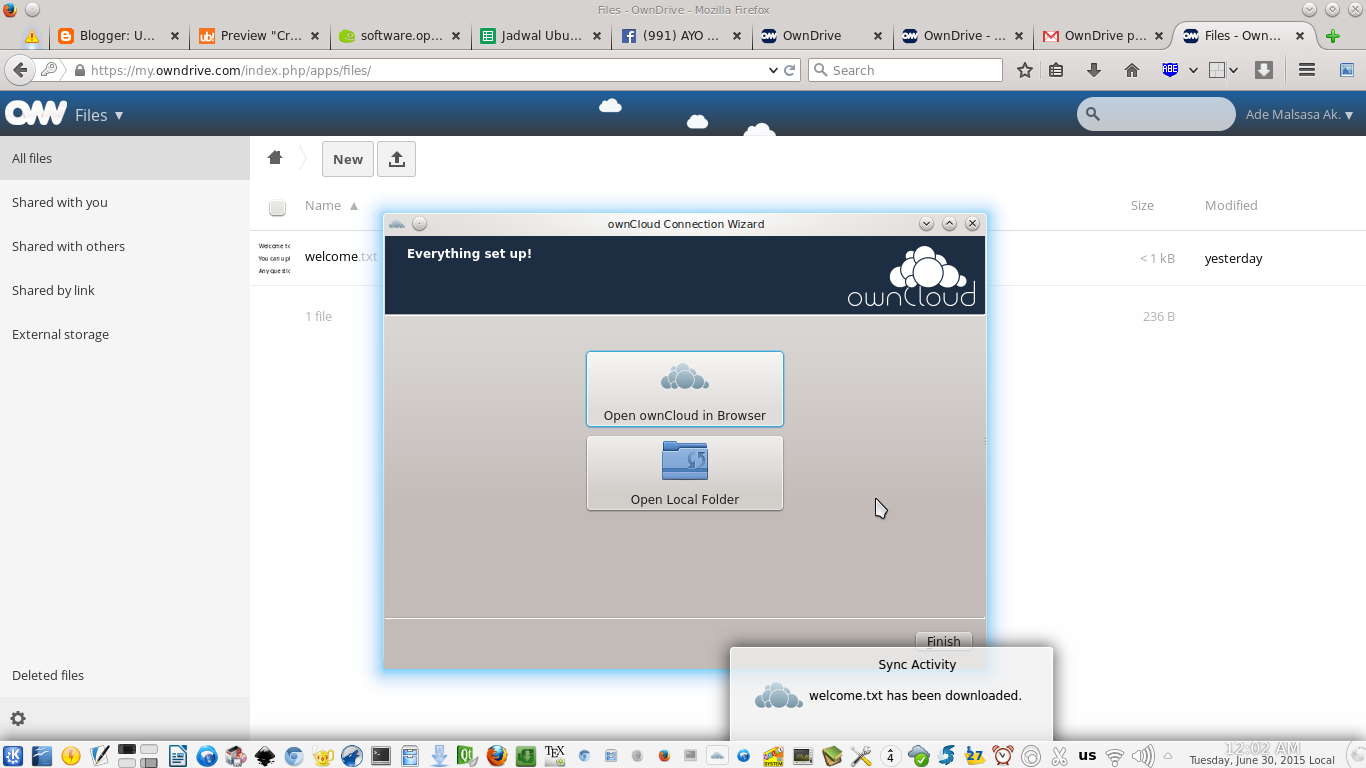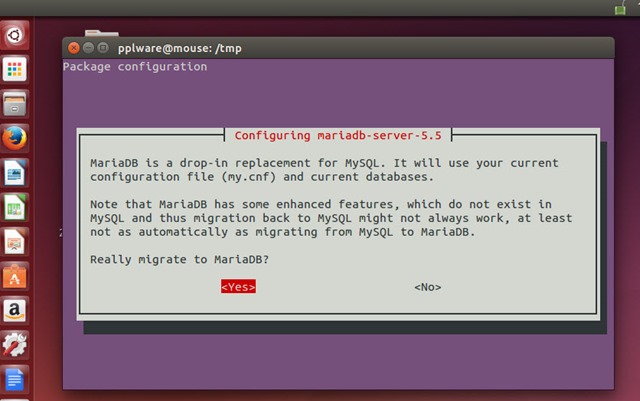
- #Owncloud install ubuntu 14.04 how to
- #Owncloud install ubuntu 14.04 install
- #Owncloud install ubuntu 14.04 update
- #Owncloud install ubuntu 14.04 full
- #Owncloud install ubuntu 14.04 android
$ sudo service apache2 restart Figure 5: Configuring the database Figure 6: Splash screenĪ quick start and set-up of the admin account
#Owncloud install ubuntu 14.04 update
Restart the Apache server to update the changes made to Apache’s config directory.
#Owncloud install ubuntu 14.04 install
The ‘owncloud’ package will install all the required dependencies. Install ownCloud using the apt-get install command. > GRANT ALL PRIVILEGES ON owncloud.* TO flush privileges > CREATE USER IDENTIFIED BY 'mysecurepassword' Replace the word ‘mysecurepassword’ with your own password in the commands, as shown below: -> CREATE DATABASE owncloud Enter the following SQL commands to create a user with the name ‘owncloud’ and a database of the same name. This opens up the MySQL command line prompt.

Log in to MySQL by using the following command: mysql -defaults-file=/etc/mysql/debian.cnf The next step is to create a MySQL database for ownCloud. Figure 3: Creating a database named ‘owncloud’ using SQL Figure 4: Create an admin account Enter a secure password, and use the tab key and the space bar to select the OK button. You will be prompted with a window to create a password for the MySQL root user. Install the LAMP (Linux, Apache, MySQL and PHP) server: $ sudo apt-get install lamp-server^

Use the apt-get update command to make apt aware of the change, as follows: $ sudo apt-get update $ sudo apt-key add - > /etc/apt//owncloud.list” To add the release key, download it using wget and import it using the apt-key command, as follows: $ wget -nv -O Release.key A release key should be added to apt and the repo link should be specified in the sources.list file to install ownCloud and its dependencies. However, ownCloud maintains a dedicated repository for Ubuntu 16.04. The ownCloud server package is not available within Ubuntu’s default repositories.
#Owncloud install ubuntu 14.04 android
If you place files in your local shared directories, they get immediately synchronised to the server and to other devices using the ownCloud Desktop Sync client, the Android app, or the iOS app. You can share one or more files and folders on your computer, and synchronise them with your ownCloud server.
#Owncloud install ubuntu 14.04 how to
$ sudo zypper install owncloud owncloud-client How to install OwnCloud 6 on OpenSUSE 12.OwnCloud is an open source ‘file sync and share’ software for everyone-from individuals using the free ownCloud Server edition, to large enterprises and service providers subscribing to the ownCloud Enterprise edition. $ sudo yum install owncloud-client How to install OwnCloud 6 on OpenSUSE 13.1: $ sudo yum install owncloud owncloud-client How to install OwnCloud 6 on CentOS 6: $ sudo yum install owncloud owncloud-client How to install OwnCloud 6 on Fedora 19: $ sudo apt-get install owncloud owncloud-client How to install OwnCloud 6 on Fedora 20: $ apt-key add - > /etc/apt//owncloud-client.list $ echo "deb /" | sudo tee /etc/apt//owncloud.list How to install OwnCloud 6 on Ubuntu 14.04, Linux Mint 17, LXLE 14.04, Pinguy OS 14.04 and Elementary OS 0.3: Follow the instructions for your system exactly, in order to get a successful installation. In this article I will show you how to install OwnCloud 6 on Ubuntu 14.04 Trusty Tahr, Ubuntu 13.10 Saucy Salamander, Ubuntu 12.04 Precise Pangolin, Linux Mint 17 Qiana, Linux Mint 16 Petra, Linux Mint 13 Maya, Elementary OS 0.3 Isis, Elementary OS 0.2 Luna, Pinguy OS 14.04, Pinguy OS 12.04, LXLE 14.04, Debian Wheezy, Fedora 20, Fedora 19, OpenSUSE 13.1 and OpenSUSE 12.3.īecause it is available via repository, installing OwnCloud 6 on the listed Linux systems is easy.
#Owncloud install ubuntu 14.04 full
For a full list of new features and enhancemnets, see the official site. The latest version available is OwnCloud 6, which has been recently released. ownCloud uses PHP and one of the following databases SQLite, MySQL, Oracle or PostgreSQL (you decide which db you install) and runs on all the operating systems that have support for at least one of this databases.

As you may know, OwnCloud is a web service that allows you to upload data via browser or by using a software client (similar to Dropbox, let’s say).


 0 kommentar(er)
0 kommentar(er)
